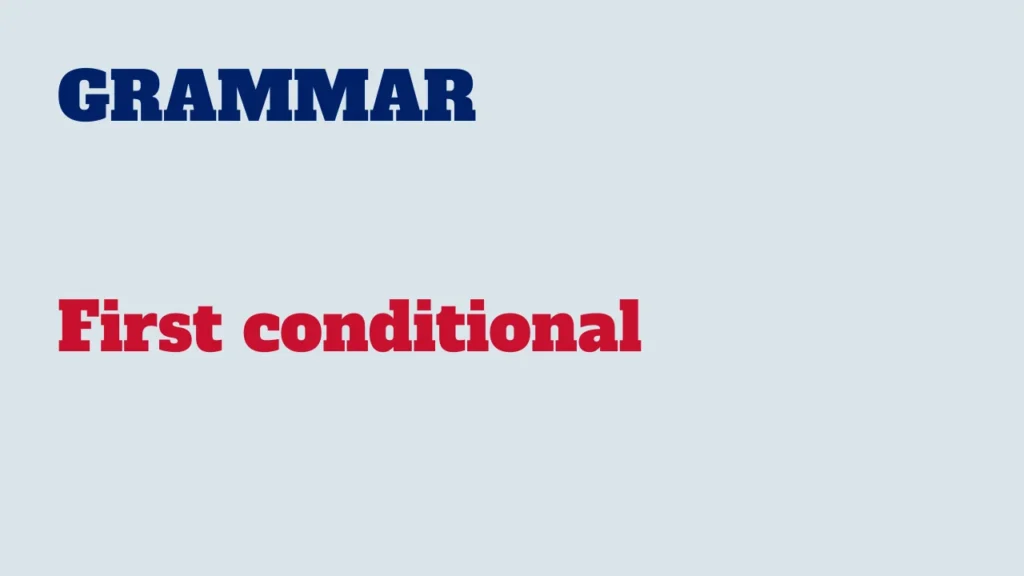The first conditional is a type of conditional sentences used to talk about real and possible future situations. It expresses a condition that is likely to happen in the future and its probable result. The first conditional is formed with the simple present tense in the “if” clause and the future simple tense (will + base verb) in the main clause.

In this lesson, we will delve into the structure, usage, and common scenarios for the first conditional.
Structure of first conditional:
If Clause: Present simple
Main Clause: Future simple (will + base verb)
Examples:
If it rains, I will stay at home.
If you study hard, you will pass the exam.
If she calls me, I will answer.
Common uses of first conditional:
Expressing real and possible future situations:
“If it snows tomorrow, we will build a snowman.”
Making predictions based on a present condition:
“If you work hard, you will succeed.”
Offering advice or suggestions:
“If you take some medicinee, you will get better .”
Key points about first conditional:
- Future possibility: The first conditional discusses future events based on a real or likely present condition.
- Use of “Will”: The main clause is formed with “will” to indicate the future result.
- Simple present tense in “If” clause: The condition is stated in the present simple tense.
Common mistakes to avoid:
Incorrect use of “Would” in the “If” clause:
Incorrect: If it would rain, we would stay inside.
Correct: If it rains, we will stay inside.
Mixing tenses:
Incorrect: If you will call me, I will come.
Correct: If you call me, I will come.
Additional tips:
Use of “Unless”:
“Unless” can be used as a substitute for “if…not” in the conditional clause.
Example:
“Unless you hurry, you will miss the train.”
Variety in sentence structure:
While “if” is commonly used to introduce the conditional clause, other expressions like “unless,” “as long as,” and “provided that” can also be used.
Mastering the first conditional will enable you to express future possibilities and make predictions based on present conditions. Practice creating sentences in the first conditional to reinforce your understanding. Happy learning!



